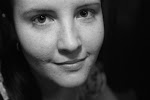When I told my 17-year-old sister that I had voted for Democrat Chris Bell in the recent governor’s election, she reacted with anger and said, “I can’t believe my own sister would become a Democrat!”
I tried to explain that I wasn’t a Democrat; I merely voted for one. But there was no calming her down. I don’t fault her because I see my teenage self in her reaction. Being raised the same way I was, with both parents highly active in the Republican Party on county, state and national levels, there is a truth she holds to be self-evident—Republicans are better than Democrats are.
According to a recent search of Facebook, 1,037 students at UMHB listed political preferences ranging from very conservative to very liberal with 19 holdouts for the Libertarian Party. My political profile, along with 319 other students, reads moderate, placing me in neither party’s camp.
This distinction allows me to be loved and hated by both because Republicans think I’m a liberal nut job, and Democrats think I have a mild case of right-wing syndrome. However, it is the moderate voters who swing elections, so both parties have to court them with incentives and “what you want to hear” speeches.
Though I can’t make up my mind, it seems that many students have, which is amazing considering the short time we’ve had the ability to vote.
Junior nursing major Katrina Jackson is a part of the more than 600 students in the very conservative to plain-jane conservative category. She said that voting on beliefs is the way to go.“Traditionally, I have voted for the Republican Party, not because of the party itself but because of the values held by most Republicans,” she said.
One problem with strictly values voters is the tendency to be stuck on one party whose values you believe match up with yours. Jackson, though, disagrees with this methodology.
“I have been a crossover voter, and that was because my values didn’t match up with the Republican candidate running.”
So, choosing the right candidate could involve research—no wonder many students aren’t interested in voting or simply vote along party lines.
According to a 2003 comprehensive review of personality and political orientation, several other factors that have developed from birth influence our political decisions. The New York University study identifies numerous personality traits and preferences that divide the parties further than voting records alone.
Liberals are messier; their rooms are cluttered and colorful. Conservatives’ rooms are neat, ordered and conventional. Conservatives are more religious. Liberals are more optimistic and like abstract art. The lists go on and on.
A 20-year University of California Berkeley study started in 1969, cited childhood personalities as a key to political preferences. It found that children who developed close relationships with peers and were rated by teachers as self-reliant and resilient were more likely to be liberal. Conservatives, however, started out as fearful and vulnerable children, making them cling to the traditional views of the right.
I’m sure the study is exaggerated beyond belief, but it does bring up what I believe is the main reason many voters side with a certain party. From childhood, our parents politically coach us to favor their beliefs. In fact, most students’ first-time voting was with at least one parent. Now in college, few students examine why their moms and dads said to vote a certain way.
I don’t think the issue is black and white. I am a moderate because I agree with both sides on different issues.
Winston Churchill had one answer about the journey voters may make by crossing party lines.
“If you’re not a liberal when you’re 25, you have no heart, but if you’re not a conservative by the time you are 35, you have no brain.”
His point and mine is that you don’t have to be a certain party member just yet, and if you are, know why. Use your heart and your head to vote your convictions.

